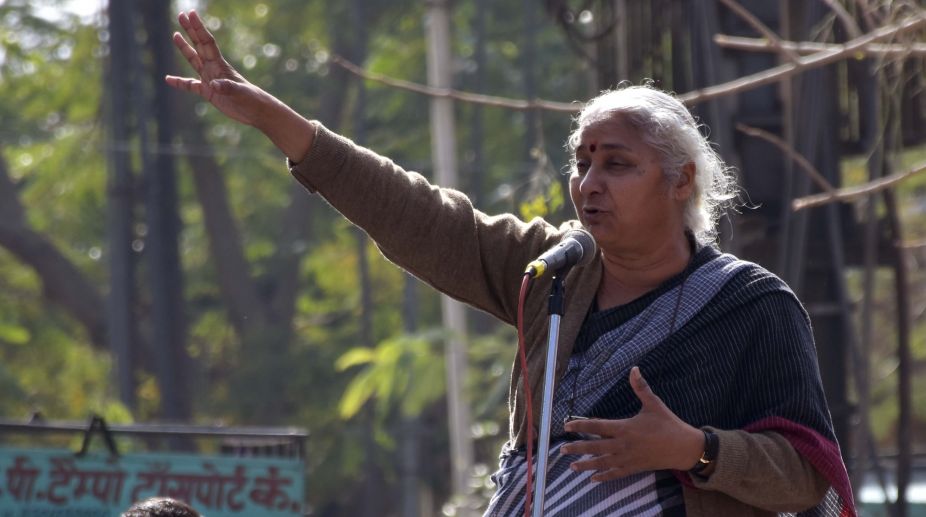While the Asian Development Bank celebrated its 50th year of its inception in Japan, thousands of people in over 21 states in India, protested against the policies and projects of the ADB.
"The protests in the past week are an outpouring sentiments against the policies and projects of ADB and other IFIs, which displaces people in the name of development and steal the livelihood of the people, pushing people to disparity and destitution," Medha Patkar, leader of the Narmada Bachao Andolan, said at a press conference organised by the Peoples’ Forum Against ADB.
Various speakers highlighted the negative impacts of the lendings by a financial institution in hydropower projects, smart cities, industrial corridors, projects in the coastal areas, agriculture and infrastructure projects.
Sunilam Smajwadi , a two-time Member of Legislative Assembly from Madhya Pradesh, informed the press here that the actions and resistance organised during the week ranged from human chains, demonstrations, public meetings to lectures, which were organised by trade unions, national networks, civil society organisations and mass movements. Some of them include the National Hawkers Federation, National Fishworkers Federation, and National Alliance for Peoples’ movement among others.
Explaining the rational behind the protest across the country, Shaktiman Ghosh, General Secretary of the National Hawkers federation, said, “We are against ADB and other IFIs, because we have seen that their investment have caused job loss and forced eviction of millions of people, particularly the ones in Urban areas, where investments in the name of urban development, infrastructure, and urban beautification have caused massive negative impacts on urban poor."
Commenting on the Vizag –Chennai Industrial corridor project funded by ADB, Meera Sanghamitra of the NAPM said, "It will create havocs in the rural areas, displacing hundreds and thousands of fish workers and will result in an irreversible damage to the environment.”
On being asked what is the alternative to development if these projects from IFIs, are not undertaken, Sunilam replied, “These projects should operate within the constitutional framework of India and respect the political set up, it should not at any cost violate the laws of this country, which it does."
Concluding the conference, former Member of Parliament from West Bengal, Hannan Mollah, said, “This kind of projects and investments in the country always pave way for privatisation which is anti-poor and benefits a few corporate houses. It is never in the interest of common masses."






